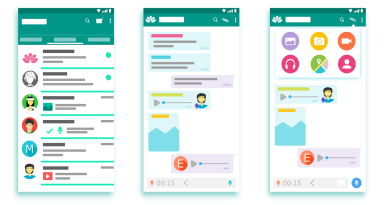Internet safety (e safety) guide for your children
It can be tricky to keep your children safe online. Here is a guide to help you get started. If you’re like most parents, you want to make sure your children are using the internet safely, but it can be difficult to know where to start. Here is a basic guide to internet safety (or “e safety”) for children of all ages. These tips will help you protect your kids from potential harm while they’re surfing the web. Keep in mind that technology changes quickly, so it’s important to update these tips often!
What is meant e-safety?
e-safety is a term used to describe the steps we can take to protect ourselves and others online. It includes things like being aware of the information we share, being careful about who we connect with, and knowing how to report anything that makes us feel uncomfortable. e-safety also means knowing how to stay safe when using social media, gaming, and other online activities. It’s important for parents to ensure that their children receive online safety training. There are a number of ways to do this, including enrolling them in an online course or signing them up for e safety tips from a reputable website.
The importance of online safety for kids
As children and young people spend more time online, it’s important that they learn how to stay safe. The internet can be a great place for kids to connect with friends, share ideas, and express themselves. However, there are also risks associated with being online. These online issues include things like cyberbullying, identity theft, and exposure to inappropriate content.
E safety in schools
E safety in school community is more important than ever. With the rise of the internet and digital devices, children are increasingly at risk of being exposed to inappropriate content or contacted by strangers. While there are many measures that schools can take to protect their students, e safety should be a top priority. By educating students on how to stay safe online and providing them with the tools to report any suspicious behaviour, schools can help to keep their students safe from harm. In addition, regular e safety audits can help to identify any potential risks and ensure that appropriate measures are in place to protect students. School staff should also be aware of the signs that a child may be at risk of being bullied or groomed online.
So what do schools do about it? schools typically have e safety policies and child protection guideline in place. These policies outline what students can and cannot do online, and they usually include rules about using social media protecting their online reputation, interacting with strangers, acceptable and unacceptable online behaviour . Schools also typically have e safety lessons, which teach students about how to stay safe online. These lessons usually cover topics such as cyberbullying and internet strangers. Finally, schools often have e safety filters in place, which block websites that contain inappropriate content. Schools always try to improve online safety more and more by taking appropriate measures.
Online safety training sessions
The UK Safer Internet Centre offers free online safety training sessions for parents, carers and educators. The sessions cover a range of topics, including e safety, keeping children safe online and managing screen time. The sessions are led by experienced trainers, and participants can ask questions and share tips with other parents and carers. The sessions are held regularly throughout the year, and the dates and times are advertised on the UK Safer Internet Centre website. Parents and carers can also sign up for e-newsletters, which contain useful information about online safety.
Governments about children’s e safety
E safety is a big concern for governments around the world. They want to make sure that children are safe when they are online and that they are not being exposed to inappropriate content. In the United Kingdom, for example, the Child Internet Safety (UKCCIS) is a coalition of more than 200 organisations that collaborate with the government to keep kids safe online. United Kingdom has also introduced a requirement for all schools to have an e safety policy in place. In Australia, the government has developed an e safety action plan, which includes a focus on education and awareness-raising. The goal is to ensure that all children know how to to navigate the online world safely. In USA, the Federal Trade Commission has published a guide for parents on e safety. The guide includes tips on how to protect kids from online predators, cyberbullying, and identity theft.
Understand the risks that exist online
Parents often worry about their children being exposed to inappropriate content or contact online, and for good reason. Children are naturally curious and can click on links or respond to messages without understanding the potential risks. In addition, they may not be aware of how to protect their personal information, such as their home address or phone number. As a result, they may be susceptible to cyberbullying, identity theft, or even physical harm. However, there are steps that parents can take to help keep their children safe online.
Fortunately, there are a number of things parents can do to help their children stay safe online and identify online risks. Here are some tips:
- Teach your children about cyberbullying and how to deal with it.
- Help your children choose strong passwords and keep them safe.
- Show your children how to report online problems or abuse.
- Keep the lines of communication open so your children feel comfortable talking to you about their online activities.
- Monitor your children’s internet use and know what sites they’re visiting.
- Teach your children to be cautious about the information they share online.
What are the 5 E-safety rules for children?
There are a few basic rules that every child should follow when they’re online. These “5 E-safety rules” will help your kids stay safe while they’re surfing the web.
1. Never give out personal information online without your parent or guardian’s permission.
Giving out personal information online can be dangerous for kids. If they share their full name, address, or phone number, they could be contacted by strangers. Strangers might try to trick kids into meeting up with them, or they could use the information to stalk or bully them. That’s why it’s important for kids to practice e safety. They should only share personal information with people they know and trust, and they should never meet up with someone they’ve met online without a parent or guardian present.
2. Be careful about who you talk to online.
In the age of the internet, it’s important to be e safety aware and teach our kids to be careful about who they talk to online. There are a lot of predators out there posing as harmless people, and it’s easy for kids to get taken in by them. It’s important to teach our kids to never give out personal information online, even to people they think they know, and to never meet up with someone they’ve only talked to online. They should also know to tell an adult if something makes them feel uncomfortable online. By teaching our kids these things, we can help keep them safe from harm.
3. Never meet up with someone you met online in person.
In today’s digital world, it’s e safety for kids to be cautious about who they meet online. While there are many benefits to meeting people online, there are also some risks. For example, kids might not be meeting people who are who they say they are. They might also be meeting people who have bad intentions. That’s why it’s important for kids to never meet up with someone they met online in person. If they do want to meet someone they met online, they should do so in a public place and with a parent or guardian present.
4. Keep your passwords private.
In today’s digital world, e safety is more important than ever for kids. One of the best ways to stay safe online is to keep your passwords private. That means not sharing them with anyone, not even your best friend. If someone gets your password, they could access your account and see all your personal information. They could also pretend to be you and send messages or post things that could get you in trouble. So it’s important to keep your passwords to yourself and never write them down where someone else could find them. If you’re feeling worried about keeping track of all your different passwords, talk to a grown-up about it. They can help you come up with a system that will work for you.
5. Tell your parent or guardian if you see something online that makes you feel uncomfortable.
Being a kid today is a lot different than when I was growing up. There wasn’t the internet to worry about then, and now it seems like kids are online all the time. It’s important for kids to know that they can come to their parents or guardians if they see something online that makes them feel uncomfortable. It’s called e safety, and it’s something that everyone should be aware of. There are a lot of predators out there who use the internet to try and hurt kids, and we need to do everything we can to protect them. So if you’re a kid reading this, please remember that you can always come to your parent or guardian if you see something online that makes you feel uncomfortable.



